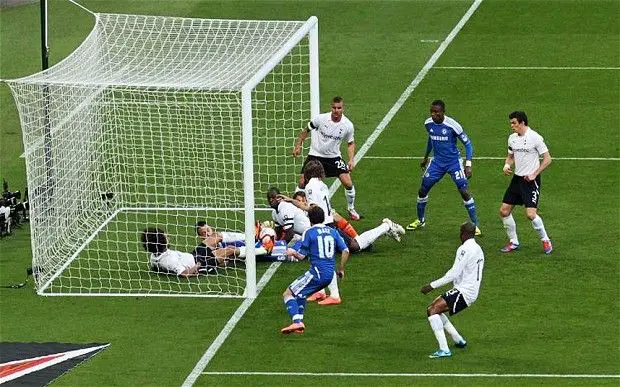This is not the sort of article you’d normally expect on The False 9. However, we felt moved enough by the events at Wembley during the Chelsea vs Spurs FA Cup semi-final to share our views.
Chelsea Football club has vowed to identify and punish any supporters that they identify as being involved in the disrespectful and disgusting chanting that marred the Wembley Cup Semi-Final against Spurs.
Any occurrence of chanting or booing during a memorial silence, be it at a football ground or any public place, invokes a dilemma. In the very majority of cases it is only a small proportion of the crowd that choose to violate the memorial, so the larger proportion of the crowd are faced with a decision whether to react to the disturbance, or wait until the end of the allotted time before showing disapproval. It’s a lose-lose situation; if they try to boo or drown out the dissenters they then effectively become part of the problem and may even be then booed themselves in a ripple effect that then becomes the most humourless of farces; but if they suffer in silence the boo-boys have their moment in the sun, and in most cases will gain confidence and resolve in the face of what they probably think is fearful acceptance.
That’s why a number of sporting memorial silences have been rejuvenated as tributes of applause. Whilst touching when applied with conviction – for example in the case of Gary Speed’s untimely death, they are nevertheless only a clever response to the fact that recently so many silences have been marred. It’s a way of avoiding embarrassment and disrespect – moving the goal-posts so to speak, to prevent the thuggish and moronic sections of the crowd from scoring a horrible goal.
An event calling for people to pay respect to the victims of the Hillsborough disaster is not one that is appropriate for a minutes applause. There is no sense comparing that tragic event with the death of a footballer, there are no heart-warming memories to recollect – it was a dark day for football, and as such must always be respectfully remembered in the traditional way.
Sadly, the traditional way is one that leaves itself open to abuse, and this is what happened at Wembley on 15th April 2012. The chanting of “Murderers” was instantaneous and had the collaboration of one or two hundred people. Still a small percentage of the people present, but it does indicate that this was a pre-meditated show of witless dissent. In addition, the stadium announcer asked for “a moments silence” prompting the more cynical to suggest that the words were carefully chosen to give the referee an option of blowing the whistle before a minute had elapsed – they knew it was coming.
Chelsea FC are working with Wembley and the FA to identify culprits, and have issued a statement promising that if they are “provided with evidence that season-ticket holders or members have been involved we will take the strongest possible action against them.” Since Chelsea
One would hope that great care is taken with those identifications. Any member of the crowd who opted to react immediately against the repulsive chants will hope that the crucial difference is spotted by those people reviewing CCTV footage.
The club statement also raises the question of free-will. Whilst everyone with a brain and a heart will condemn the vile chants that were heard, no law has actually been broken. If a memorial silence is enforced, it loses some of its poignancy. A crowd will probably better observe the silence with the threat of a lifetime ban hanging over anyone that breaks that silence, but that isn’t the point of it. This is one of those awkward situations where freedom of speech and incitement of hatred clash. Is it right to prevent people from chanting inside a football stadium? In this context, of course – but it isn’t legal to prevent them from doing so.
Football clubs must of course act against hate speech – as evidenced in numerous operations by the Old Firm clubs in fighting sectarianism. But calling someone, who isn’t present, a murderer isn’t a hate crime, whilst morally bereft these Chelsea
It’s a long and sad journey from having to enforce memorial silences at football stadiums to making public crowds weep at the death of a leader, as has happened in China and North Korea, but our freedom of speech is something that many people have lost their lives to defend and is something we hold very dear in our unwritten constitution.
Of course this is extrapolation in the extreme to prove a point that is more depressing than anything else, and in truth it’s a dreadful shame that anything has to be written at all about this sort of behaviour in our supposedly tolerant and sophisticated society. But it’s that same supposed tolerance and sophistication that demands that another way is found.
Tom Nash @breitnersbeard










Recent Comments